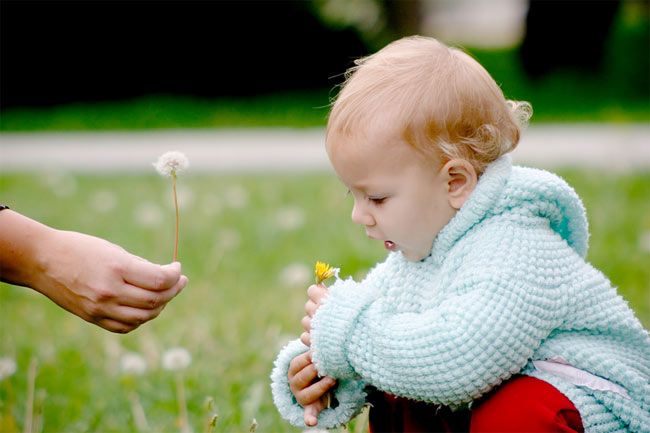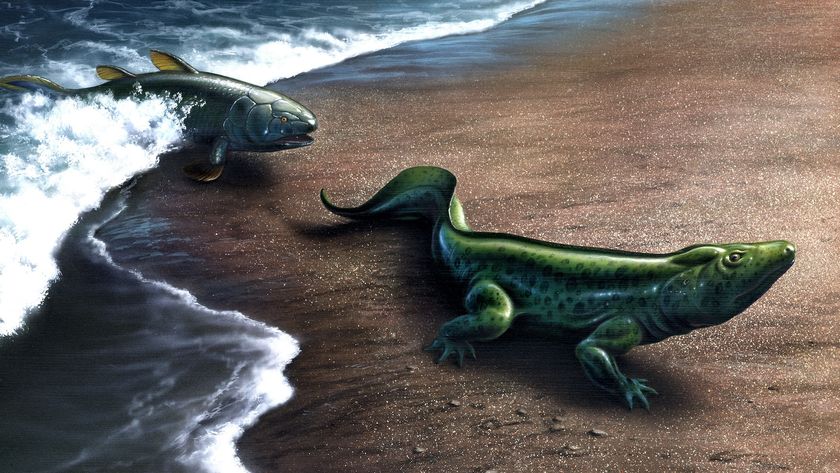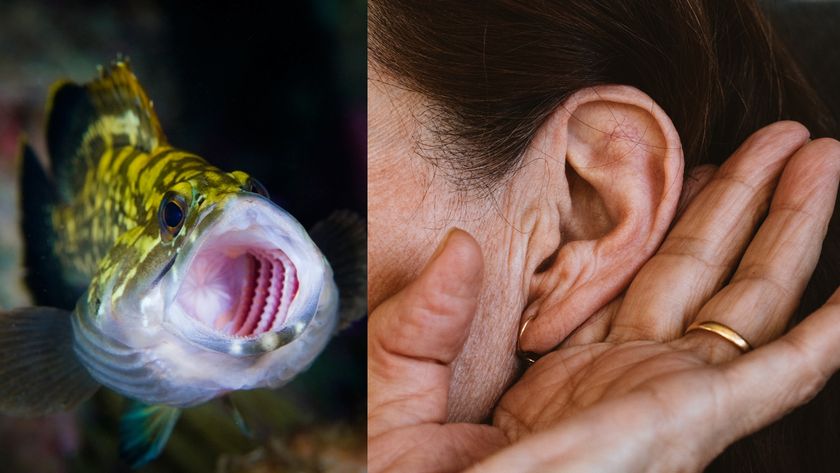Even Toddlers Appreciate Altruism

With the help of some toddlers, researchers have new insight into a fundamental part of human nature: altruism.
Humans care more about whether others try to help than if they actually succeed. And this priority is already understood by children as young as 21 months, according to a study published in the April issue of the journal Psychological Science.
Most species will lend a paw or tentacle to their fellow kin, the kind of altruism that evolution easily understands. It goes something like, "I want my genes to survive and you have my genes, so I guess I'll help you."
Humans, however, are consummate helpers, assisting not just kin but people outside their families and even strangers.
"As early as Charles Darwin, we have been talking about how strange this is," said lead researcher Kristen Dunfield at Queen's University in Ontario, Canada.
Makes us unique
Even if some animals are occasionally obliging, humans help more, and in more ways, than any other species, Dunfield told LiveScience. "The cooperative nature of human beings is at the basis of what makes humans unique ," she said.
Sign up for the Live Science daily newsletter now
Get the world’s most fascinating discoveries delivered straight to your inbox.
Still, we don't help everyone. So, how do we choose? We prioritize people who themselves seem helpful, research shows.
Previous research has found that 60 percent to 80 percent of children regularly try to help people by the time they are 14 to 18 months old. They will, for example, quickly fetch fallen objects or open doors for people without prompting.
Although parents surely promote this behavior, "children come into the world with a biological sensitiveness to pick up on these social cues," said Dunfield.
Scientists used to think toddlers helped people indiscriminately — that it wasn't until they grew up, and perhaps had a few hard knocks, that they learned who to rally around and who to snub.
But Dunfield and Valerie Kuhlmeier's new research suggests that children are choosy from day one. And they are more interested in the social exchange than the material one.
Good intentions matter more than toys
In a series of experiments, toddlers met with two friendly women who differed in their willingness and ability to give a toy to the child. The adult could be willing and able, willing but unable, or unwilling to provide this "help." After this interaction, the child was given an opportunity to help only one of the adults by returning a belonging that had fallen.
When both adults wanted to give toys, but one was unable, the kids didn't hold it against her. They were equally likely to help either adult, Dunfield said.
But when one of the adults refused to share, the kids preferred helping the adult who had been willing, even if she had been unsuccessful. (The toy was offered to the child, but placed on a slanted tabletop. When it rolled away from the toddler, the adult feigned surprise.)
In a final experiment, one grown-up gave the children toys "by mistake." Instead of explicitly offering a toy, she let it roll toward a child as she looked away. Despite her plentiful, if unintended, provision of toys, the tots favored the other adult who had offered toys directly.
Even as young children, the research suggests, we value the intentions of others more than what we actually get from them.
The helping species
It may make good evolutionary sense to have such advanced social skills develop in the first years of life.
"Helping is quite basic to many human interactions," Dunfield said. And cooperative relationships have likely been critical to our success as a species, other research has shown. Perhaps humans help people outside their own kin to strengthen and build cooperative social networks with other sincere individuals, this research suggests, not out of tit-for-tat reciprocity.
Robin Nixon is a former staff writer for Live Science. Robin graduated from Columbia University with a BA in Neuroscience and Behavior and pursued a PhD in Neural Science from New York University before shifting gears to travel and write. She worked in Indonesia, Cambodia, Jordan, Iraq and Sudan, for companies doing development work before returning to the U.S. and taking journalism classes at Harvard. She worked as a health and science journalist covering breakthroughs in neuroscience, medicine, and psychology for the lay public, and is the author of "Allergy-Free Kids; The Science-based Approach To Preventing Food Allergies," (Harper Collins, 2017). She will attend the Yale Writer’s Workshop in summer 2023.












